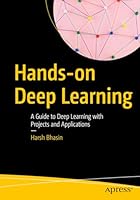
Logic in Games
- Length: 568 pages
- Edition: 1
- Language: English
- Publisher: The MIT Press
- Publication Date: 2014-01-24
- ISBN-10: 0262019906
- ISBN-13: 9780262019903
- Sales Rank: #1893186 (See Top 100 Books)
This book draws on ideas from philosophical logic, computational logic, multi-agent systems, and game theory to offer a comprehensive account of logic and games viewed in two complementary ways. It examines the logic of games: the development of sophisticated modern dynamic logics that model information flow, communication, and interactive structures in games. It also examines logic as games: the idea that logical activities of reasoning and many related tasks can be viewed in the form of games. In doing so, the book takes up the “intelligent interaction” of agents engaging in competitive or cooperative activities and examines the patterns of strategic behavior that arise. It develops modern logical systems that can analyze information-driven changes in players’ knowledge and beliefs, and introduces the “Theory of Play” that emerges from the combination of logic and game theory. This results in a new view of logic itself as an interactive rational activity based on reasoning, perception, and communication that has particular relevance for games. Logic in Games, based on a course taught by the author at Stanford University, the University of Amsterdam, and elsewhere, can be used in advanced seminars and as a resource for researchers.
Table of Contents
Part I Game Logics and Process Structure
Chapter 1 Games as Processes: Definability and Invariance
Chapter 2 Preference, Game Solution, and Best Action
Chapter 3 Games with Imperfect Information
Chapter 4 Making Strategies Explicit
Chapter 5 Infinite Games and Temporal Evolution
Chapter 6 From Games to Models for Games
Part II Logical Dynamics and Theory of Play
Chapter 7 Logical Dynamics in a Nutshell
Chapter 8 Deliberation as Iterated Update
Chapter 9 Dynamic-Epistemic Mechanisms at Play
Chapter 10 Toward a Theory of Play
Part III Players’ Powers and Strategic Games
Chapter 11 Forcing Powers
Chapter 12 Matrix Games and Their Logics
Chapter 13 Rational Dynamics for Strategic Games
Part IV Logic Games
Chapter 14 Formula Evaluation
Chapter 15 Model Comparison
Chapter 16 Model Construction
Chapter 17 Argumentation and Dialogue
Chapter 18 General Lines through Logic Games
Part V Operations on Games
Chapter 19 Dynamic Logic of Sequential Game Operations
Chapter 20 Linear Logic of Parallel Game Operations
Part VI Comparisons and Merges
Chapter 21 Logic Games with Imperfect Information
Chapter 22 Knowledge Games
Chapter 23 Sabotage Games and Computation
Chapter 24 Logic Games Can Represent Game Logics
Chapter 25 Merging Logic Games with Game Logics
Part VII Conclusion







